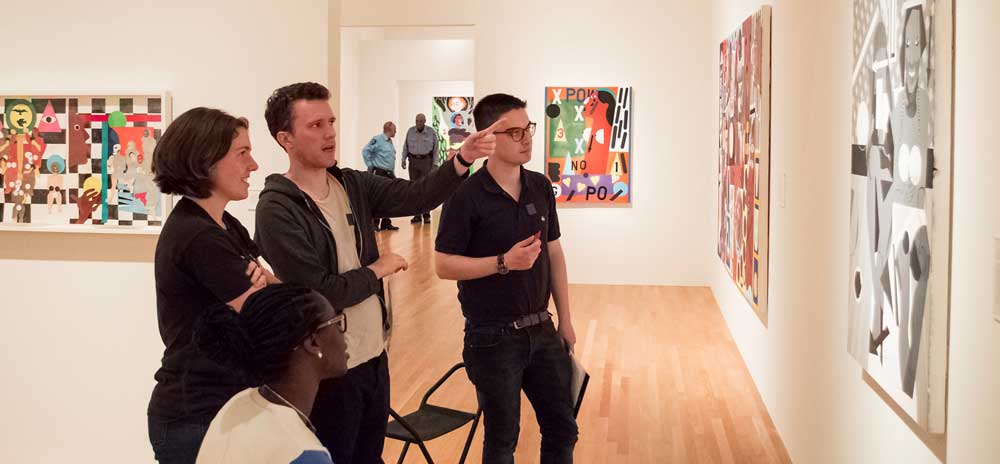By Maria LaMonaca Wisdom
Director of Graduate Student Advising and Engagement for the Humanities

I sat down recently with a newly-minted Ph.D. who—after one foray onto the academic job market—was just beginning to explore some nonacademic career options. She confessed to me that for a long time, she was “afraid to read” VH@Duke emails because by doing so, she’d admit to herself that she was entertaining possibilities other than a faculty career.
This exchange led me to ponder the ways in which we form identities as graduate students—as people who “do” or “don’t do” certain things—often to our detriment. The first couple of years in any graduate program is a time of intense identify formation, in which most students look to faculty mentors for guidance, role modeling, and validation. Faculty provide essential guidance as we learn how to research, write, publish, and teach in our disciplines.
Yet, without fully realizing it, we may find ourselves overdoing it. I still recall one conversation in graduate school where I earnestly listened to one of my professors tell us how to behave at departmental parties. “Develop a taste for scotch,” she told us, with a completely straight face. “Only graduate students drink beer.”
This reliance (or overreliance) on faculty perspectives is one reason that grad students may be loathe to explore beyond their programs, whether that be possibilities for other kinds of academic engagement, interesting funding opportunities, or information about other career paths.
While it’s never a good idea to limit your options prematurely, I also worry about an academic culture of professional development that teaches students to place so much purchase on external validation. The message we get, from the first days of any graduate program, is that we need to measure up. We need to get straight As, talk and write the lingo, attend the right conferences, get published in the right academic journals … and drink scotch. At the end of six or seven long years of graduate study, all of these decisions and actions will be validated when a hiring committee chooses us to be the newest tenure-track faculty member at XYZ University.
——- ♦ ——-
Define your worth by what you can offer the world, rather than what professional trajectory you choose, or how you fare on any one job search.
——- ♦ ——-
This may be the way things work, but as a professional development strategy, it stinks. Whether you end up in the academy or outside of it, you can’t make significant professional contributions if you always define yourself by the good grades you get, the glowing letters from your faculty mentors, and the awards, jobs, and promotions that come your way. No matter how successful your career, there will be long periods where nobody is throwing roses at you or seems particularly excited about what you are doing.
So what’s the alternative? Start building resilience in the face of setback: define your worth by what you can offer the world, rather than what professional trajectory you choose, or how you fare on any one job search.
How can VH@Duke help? Beyond introducing Ph.D. students to multiple academic and professional opportunities, the program invites reflection on what it means to be a humanist who makes positive, significant impact, whether in academia or beyond. For this reason, we define “Versatile Humanists” not by what they end up doing, but by a certain disposition and set of abilities.
Versatile Humanists are:
- open to interdisciplinary approaches, knowing that most contemporary problems are best addressed from multiple perspectives;
- curious about new methodologies and tools that might enhance scholarly research;
- thoughtful about the question of impact and who will benefit from their work;
- resistant to scholarly jargon and able to communicate ideas clearly to different audiences;
- self-aware, with the necessary interpersonal skills for working collaboratively;
- comfortable reaching out to, and interacting with, professionals who are not academics;
- committed to being knowledgeable about matters not strictly pertaining to their disciplines;
- not held back by preoccupations with academic prestige;
- confident about their competencies and talents, and not engulfed in pessimism about the state of the job market; and
- nimble and equipped to enter a rapidly changing workplace, even (or especially) within the university.
Focusing on attributes rather than specific career outcomes has, I suppose, a bit of a retro feel. After all, being a Renaissance humanist wasn’t exactly a paying gig. Rather, the notion of humanitas evoked a historically and culturally specific vision of human excellence and a way of being in the world.
So go about your graduate study in pursuit of excellence and impact, rather than approval. If those terms sound a bit too corporate for your tastes, invent your own terms. My son recently came home from school with an award and crowed, “I got it for being awesome!” (no self-esteem issues there).
If it works for you, focus on being awesome. Check out the VH@Duke website now to see how we can help.
